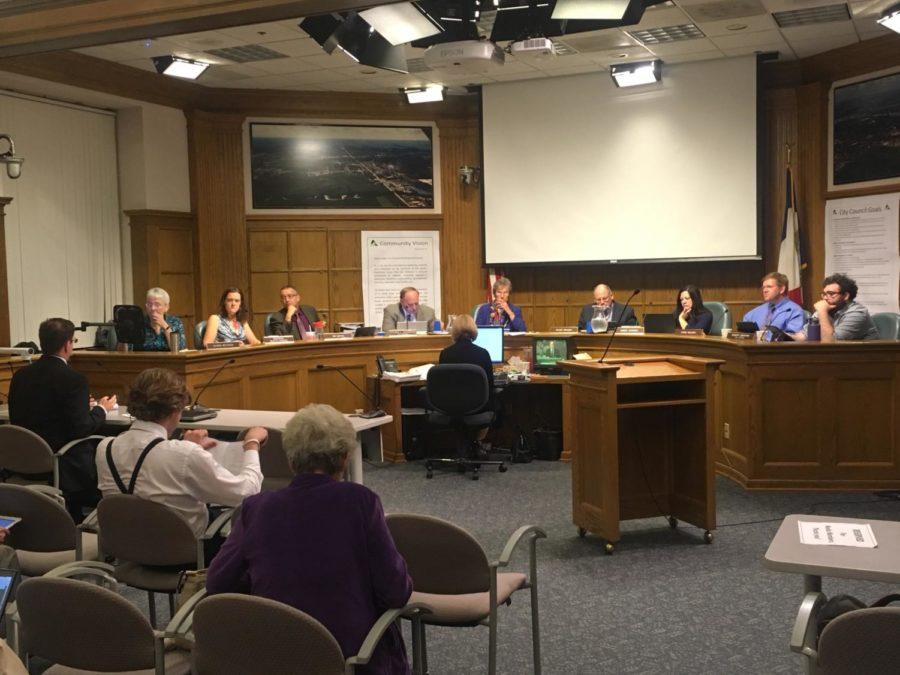City council discusses temporary rental moratorium
Ames City Council considers slight changes in Lincoln Way Corridor implementation plan during their meeting on Sept. 26.
September 26, 2017
A six-month moratorium on the ability to issue rental letters of compliance by the city was heavily discussed Tuesday evening, which would restrict property owners to create new rental properties in Ames.
The rationale for the moratorium is to “provide a temporary means to protect neighborhoods by preserving the current level of rental properties in the city,” according to city documents.
The moratorium was per the request of the South Campus Neighborhood Association at a council meeting two weeks ago in which the council had been discussing possible solutions to an occupancy ordinance change it will soon be facing.
Currently, the city of Ames restricts the number of unrelated people allowed to live in a rental property to three individuals.
According to a state law passed in the most recent legislative cycle, Ames may no longer restrict occupancy based on familial status — leaving the city to scramble to find a viable solution to the issue.
To buy more time to discuss the ordinance issue, the council saw the moratorium as a way to research what the solution might be.
“[The moratorium] is not a solution, but to instead buy time to analyze solutions long-term,” Mayor Ann Campbell said. “Since legislature passed the law, the [city] staff and some of us have been frantically looking at solutions.”
Some were opposed to the moratorium, including realtors and homeowners looking to sell in predominately renter-occupied neighborhoods.
Sara Samms, an Ames realtor, pointed to the reasoning behind implementing the moratorium.
“Having an ordinance in place directly impacts sellers,” Samms said. “Is this ordinance going to do what it is intended to do?”
Other Ames residents, such as Austin Downey, a graduate student at Iowa State, said he has owned his home on Lincoln Way for the past 10 years.
In that time period, he said, his neighborhood has been majority rental-occupied, and that neighborhoods like his close to campus are wonderful for colleges students.
What he said he is most worried about, however, is that when he graduates in the near future, he will most likely not be able to sell his house due to the inability to turn it into a rental property under the new owner because of this moratorium.
“I am one of the people who would be extremely, financially devastated by this,” Downey said. “I need to be able to sell my house.”
Neighborhood representatives from the South Campus Area Neighborhood Association were also present, urging the council to pass the moratorium.
“You’re talking about community and preservation of neighborhood,” SCAN President Barbara Pleasants said. “The moratorium buys time to get this right.”
Ahead of the discussion on the moratorium, Student Government Director of Governmental Affairs Kody Olson discussed student housing during the public forum, requesting the council to “please keep students in your mind.”
“The city of Ames should be doing everything in its power to make sure living here is as easy as possible,” he said, specifically in light of possible tuition increases.
After hearing from the public on the moratorium, the council debated several options moving forward, including motioning for an amendment that would restrict the moratorium to specific neighborhoods most affected by campus.
The council will revisit the moratorium in a couple of weeks, which will allow for more public input and the ordinance to be revised with the amendments.

















